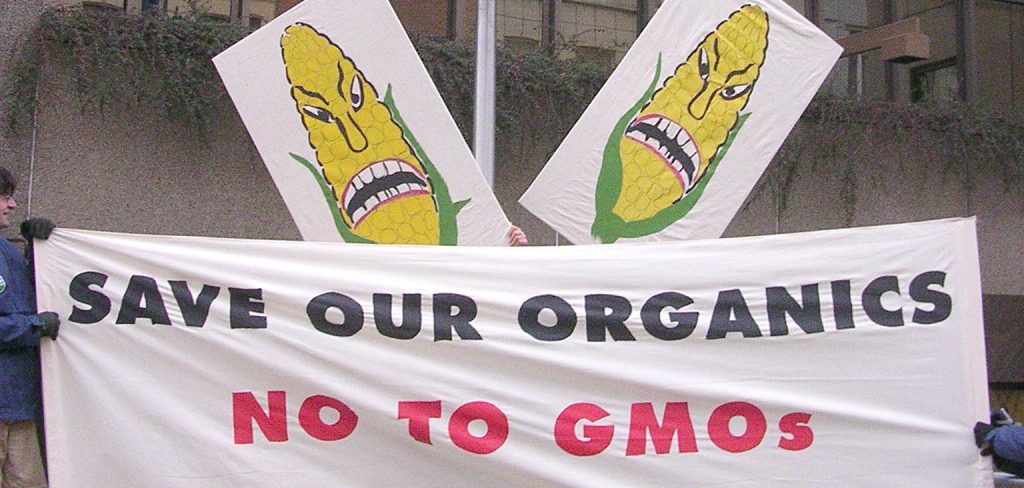Brussels, 7 May 2008 – Today’s European Commission decision to send three controversial genetically modified crops back to its food safety agency is a huge vote of no confidence in the EU’s approval system claim Friends of the Earth Europe and Greenpeace, who say it raises serious concerns about the ability of the agency to check the safety of GM crops.
The European Food Safety Authority (EFSA) will be asked to review:
– its previous opinion on the safety of a genetically modified (GM) potato in light of concerns raised by international institutions such as the World Health Organisation (WHO), the Institut Pasteur and the European Medicines Agency (EMEA). The GM potato, produced by German chemicals company BASF, contains a gene which confers resistance to certain antibiotics which are highly relevant for human and animal health;
– its previous assessment of two GM maize varieties engineered to produce their own pesticide. Despite widespread scientific controversy about the safety of pesticide GMOs, EFSA originally stated that both varieties were safe. EFSA then recognised that it was unable to carry out the legally required assessment of indirect and long-term environmental impacts. Last month, the Commission agreed that EFSA would need two years to develop its capacity to assess the long-term and indirect impacts of GMOs.
Greenpeace and Friends of the Earth Europe call for EFSA to be reformed, to ensure that its opinions are scientifically sound and impartial. The agency is understaffed and lacks the appropriate expertise to fulfil its legal obligations on EU GMO risk assessments.
“The result of today’s Commission debate is a clear vote of no confidence in EFSA. The question is now how many more times Barroso is prepared to ignore scientific evidence and public opinion until he gets the decision he wants. Asking Europe’s underfunded and inadequate food agency to look at the safety of these crops for the third time is like putting a fox in charge of a hen house,” said Marco Contiero, Greenpeace EU GMO campaign director.
“Commissioners are right to reject previous EFSA opinions on the three crops, but wrong not to take a decision on the two pesticide maizes. Given the serious scientific concerns linked to these crops, the dossier should have been rejected today, instead of delaying the process by two years by sending them back to EFSA. The Agency is in dire need of complete reform if it is to be trusted in making important judgements about the safety of GM crops,” said Helen Holder, GMO coordinator for Friends of the Earth Europe.
***
NOTES TO EDITORS:
(1) The two GM maize varieties, developed by the companies Syngenta and Pioneer/Dow are engineered to produce their own insecticide. There is growing scientific evidence showing that the insecticide could affect wildlife and may have knock-on effects on Europe’s biodiversity. The Commissions environment department in charge of approval under EU law has proposed to reject these crops.
Also up for discussion was BASF’s `Amflora’ potato – a GM potato containing a gene which confers resistance to certain antibiotics. The World Health Organisation, the European Medicines Agency and the Institut Pasteur are at odds with EFSA on the possible impact of this product on human health and the environment.
(2) – The legal bans are in France, Austria, Poland, Hungary and Greece.
– See p.66 of the March 2008 Eurobarometer survey:
http://ec.europa.eu/environment/barometer/pdf/report2008_environment_en.pdf
– The French government has called for a debate on the review of the EU
– The World Trade Organisation (WTO) has also repeatedly criticised the EU for “undue delays” in the authorisation of GMOs. See the latest WTO ruling: http://www.wto.org/english/tratop_e/dispu_e/cases_e/ds291_e.htm.
For more information on the dangers associated with GM maize varieties and the GM potato see www.greenpeace.eu and www.foeeurope.org

![]()







